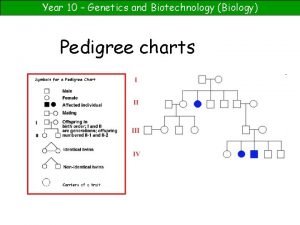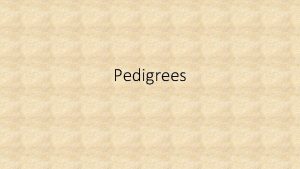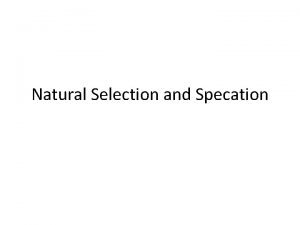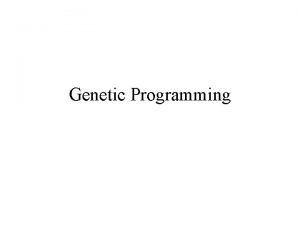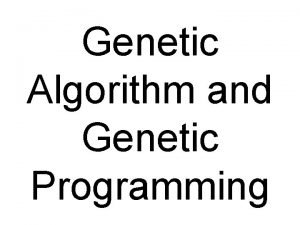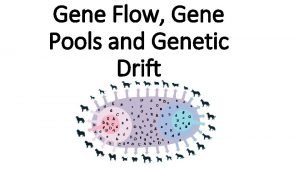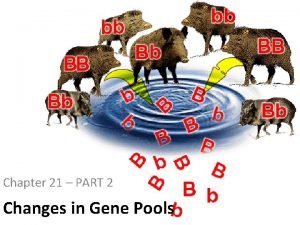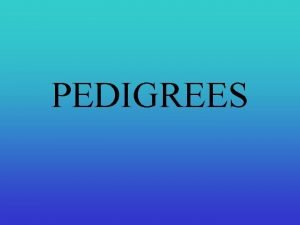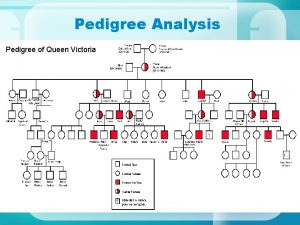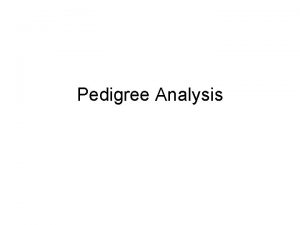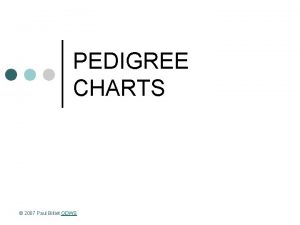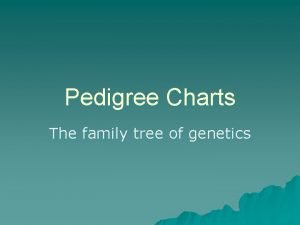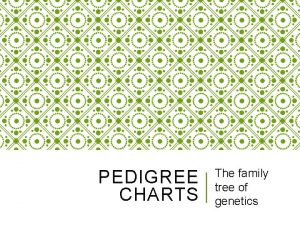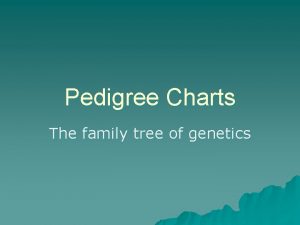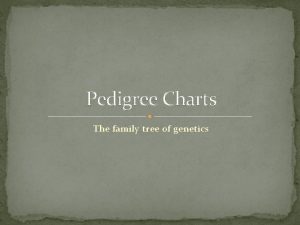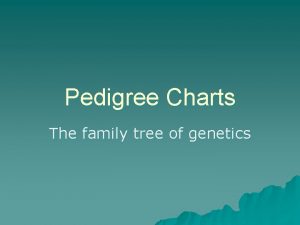PEDIGREE CHARTS A family history of a genetic











- Slides: 11

PEDIGREE CHARTS A family history of a genetic condition © 2007 Paul Billiet ODWS

What is a pedigree chart? ¢ Pedigree charts show a record of a specific disease or trait in a family. They can be used to study the spread of a hereditary condition They are particularly useful when there are large families and a good family record over several generations. l Cheap and non invasive way to investigate if a disease may be genetic l © 2007 Paul Billiet ODWS

Why is studying human genetics so hard? o o o Cannot breed humans by selection Long time frame for each generation Complexity of human genome Moral/Ethical barriers Relatively few offspring Complex lifespan/lifestyle/epigenetic factors © 2007 Paul Billiet ODWS

Symbols used in pedigree charts ¢ ¢ ¢ Normal male Affected male Normal female Affected female Marriage Half-filled box is a known carrier of the trait, but not expressed (seen). © 2007 Paul Billiet ODWS A marriage with five children, two daughters and three sons. The eldest son is affected by the condition. Eldest child Youngest child

Organising the pedigree chart ¢ A pedigree chart of a family showing 20 individuals © 2007 Paul Billiet ODWS

Organising the pedigree chart l Generations are identified by Roman numerals I II IV © 2007 Paul Billiet ODWS

Organising the pedigree chart ¢ ¢ Individuals in each generation are identified by numerals numbered from the left to right Therefore the affected individuals are II 3, IV 2 and IV 3 I II IV © 2007 Paul Billiet ODWS

Reading a Pedigree: Dominant inheritance ¢ Gen I : Dad has the trait, mom does not. l ¢ What are the possible genotypes for mom? Gen II : One daughter and son has the trait and one son does not.

A Royal Pedigree: Sex. Linked Inheritance ¢ ¢ ¢ Gen 1: Albert and Victoria are married and do not have hemophilia Gen 2: They have 6 children: 3 boys and 3 girls. Leopold is the only child who has hemophilia. How do you describe generation 3 and 4?

Draw our own Pedigree ¢ Widows Peak is a basic Mendelian dominant trait. A male with widows peak marries a woman who does not have widows Peak. l They have 3 children, 2 boys and 1 girl.

Draw our own Pedigree ¢ ¢ We know that Color Blindness follows a Sex-Linked Recessive Pattern Color blind dad marries a mother who can see color. l They have 3 children (2 boys, 1 color blind) and 1 color blind girl. What is the mothers genotype? l The color blind girl marries a man who can see color and they have 1 boy and 2 girls. Can their son see color? What are the possible genotypes for the girls?
 Pedigree biology
Pedigree biology Autosomal recessive pedigree
Autosomal recessive pedigree The pedigree below tracks duchenne muscular dystrophy
The pedigree below tracks duchenne muscular dystrophy Genetic drift definition
Genetic drift definition Genetic programming vs genetic algorithm
Genetic programming vs genetic algorithm Genetic programming vs genetic algorithm
Genetic programming vs genetic algorithm What is gene flow and genetic drift
What is gene flow and genetic drift Genetic drift vs genetic flow
Genetic drift vs genetic flow Hearsay
Hearsay Pedigree chart symbols
Pedigree chart symbols Victoria pedigree
Victoria pedigree Pedigree dominant or recessive
Pedigree dominant or recessive
